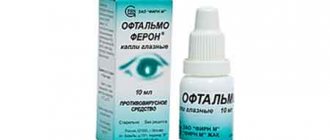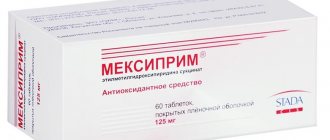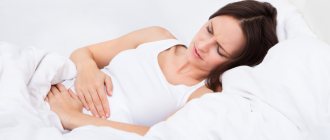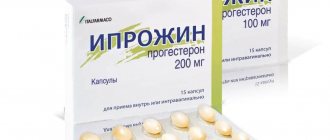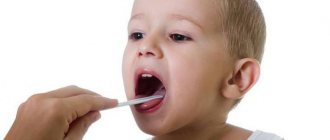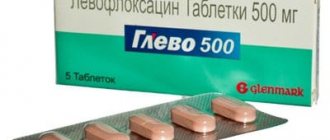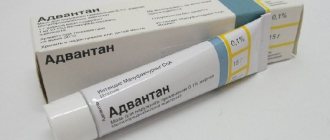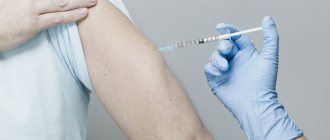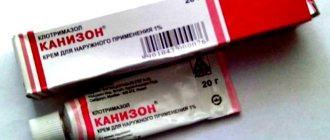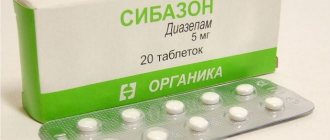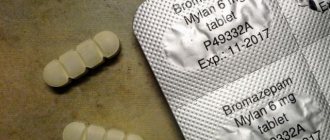Release form and composition
This medicine is supplied to the market in the form of a solution in ampoules. It is intended primarily for use by the parenteral (bypassing the gastrointestinal tract) method. Sometimes it is administered to patients intramuscularly. In some cases, intravenous infusions of this drug are also used. One package usually contains 10 ampoules of medication.
Modern drugs to enhance immunity can be made based on various substances. Adults and children can be prescribed both quite expensive and cheap medications from this group. The product "Erbisol" is a complex of low-molecular non-protein compounds of a non-hormonal nature. The substances that make up this medicine are obtained from animal embryonic tissue. The components of this medication are:
- peptides;
- glycopeptides;
- nucleotides;
- amino acids.
Thus, the composition of the medicine is quite complex - Erbisol. Ampoules of this medication may contain 1 or 2 ml of active substance. This medicine is valued primarily for its ability to activate control mechanisms already established by nature that are responsible for the elimination of pathogenic processes. It is quite expensive.
Sometimes patients look in pharmacies for another form of the drug Erbisol - tablets. Unfortunately, this medicine is not available in this form.
Basic information about the medicine
Before starting treatment with this medication, you must study the attached instructions in detail. This information will help you choose the most effective dosage and duration of treatment.
Release form and composition
Manufacturers of the drug Erbisol produce only one dosage form - solution for injection. It can be administered to the patient intramuscularly, intravenously or intraarterially. The mixture is a colorless liquid with a strong, specific odor. It is available in glass ampoules with a capacity of 1 or 2 milliliters. Ten such containers are packed in a cardboard box.
The composition of the drug does not differ in the large number of components. One ampoule of the drug contains the following substances:
- erbisol (active ingredient);
- peptides;
- glycopeptides;
- amino acids;
- nucleotides;
- isotonic sodium chloride solution.
Indications and contraindications
Erbisol or Erbisol Extra is prescribed by doctors to restore the functionality of various vital systems of the body . In addition, the drug is used to combat the following diseases:
- various types of hepatitis and hepatosis;
- cirrhosis of the liver;
- gastroduodenitis;
- ulcerative colitis;
- ulcer of the duodenum and stomach;
- damage to the body that resulted from an environmental disaster and radiation exposure;
- diabetes;
- autoimmune thioroiditis;
- tuberculosis;
- angiopathy;
- pneumonia;
- chronic inflammation of the bronchi;
- inflammation of the dermis;
- allergic diseases;
- periodontal disease;
- purulent inflammation;
- bone fractures.
The instructions for its use include several contraindications that must be taken into account before starting treatment. These include:
- increased sensitivity of the body to the active substance of the drug;
- individual intolerance to one or more auxiliary components;
- age up to 12 years;
- all trimesters of pregnancy;
- period of breastfeeding the baby.
pharmachologic effect
Once in the patient’s body, the medicine begins to stimulate his immune system to speed up the process of “repairing” damaged cells and destroying abnormal cells. Among other things, Erbisol is able to stimulate the development of the liver regeneration process. This drug also has anti-inflammatory properties.
The immunomodulatory effect begins to develop 5-7 days after the first dose of the medication. It reaches its maximum values at 20-21 days. The beneficial effect caused by this medicine remains for about 8-10 days after the end of its use.
Erbisol ultrapharm (Erbisol ultra) amp. 2ml No. 10
Dosage form
Solution for injection, pack of 10 ampoules.
Compound
Composition per 1 ml of drug
Active ingredients: a complex of natural non-protein low molecular weight organic compounds of non-hormonal origin, obtained from animal embryonic tissue, contains oligopeptides and glycopeptides, nucleotides, amino acids.
Excipients: 0.9% isotonic sodium chloride solution.
Pharmacological group
Immunostimulants. Antiviral agents for systemic use.
Pharmacological properties
Pharmacodynamics.
The pharmacological activity of the drug is determined by the content of low-molecular biologically active peptides in it, which activate the natural, evolutionarily formed control systems of the body, which are responsible for searching for and eliminating pathological changes. Erbisol Ultrapharm activates the immune system to accelerate the restoration of damaged cells and destruction of abnormal cells and tissues. The main immunomodulatory effect of the drug is manifested primarily due to its effect on NK cells (CD3- / 16 + 56 +) and T-killer cells (CD3 + / 16 + 56 +), which are responsible for the destruction of damaged cells that are unable to regenerate, or abnormal cells (mutant, malignant, virus-carrying cells, etc.) and tissues, as well as through the macrophage link, responsible for the repair of damaged cells and restoration of the functional activity of organs and tissues. At the same time, Erbisol Ultrapharm has an immunocorrective effect and, in case of disturbances in the immune status, contributes to its normalization by activating T-lymphocytes, Th1 helper cells and T-killers, which is important for restoring the balance between cellular and humoral immunity in cancer and allergic processes.
Depending on the state of the body’s immune system, the drug adjusts the level of some other immunity factors: induces the synthesis of α-, b- and y-interferons, tumor necrosis factor, interleukin-2 (IL-2) and IL-12, inhibits the synthesis of IL-10 . Erbisol Ultra enhances the effect of antibiotics and exogenous interferons and, at the same time, reduces their toxic side effects.
In case of viral hepatitis, Erbisol Ultrapharm activates cytotoxic T-lymphocytes (CD8 +) and T-killer cells (CD3 + / 16 + 56 +), which are responsible for the destruction of virus-carrying cells, and also induces the synthesis of interferons, which helps accelerate the elimination of the virus. At the same time, by activating liver regeneration processes, the drug promotes the replacement of dead hepatocytes with healthy ones, which allows us to classify Erbisol Ultrapharm as a drug that reduces the severity of an infectious disease. The drug has anti-inflammatory properties, but treatment of chronic inflammatory processes can go through an exacerbation phase within 2-5 days.
In case of cancer, Erbisol Ultra helps to correct the immune system of patients, normalizing its parameters due to the activation of Th1 helper cells and T killer cells and inhibition of the activity of Th2 helper cells and B lymphocytes, helps restore specific cellular immunity and, above all, activate T killer cells. The drug also activates macrophages and natural killer cells (N-killers) of nonspecific immunity, induces the synthesis of a- and y-interferons and tumor necrosis factor. This can lead to inhibition of both the growth and metastasis of malignant tumors, and in combination with surgery or chemotherapy and radiotherapy can contribute to their effective destruction.
As an accompanying drug for chemotherapy and radiotherapy, Erbisol Ultrapharm significantly increases the effectiveness of treatment in two areas. Firstly, as a reparant and immunoprotector, it protects healthy cells and tissues from chemical and radiation damage, restoring damaged areas. This allows the use of more enhanced regimens using potent chemotherapy drugs and doses of radiation without the risk of particularly negative consequences for the patient’s condition, preventing hair loss, eliminating or significantly reducing the manifestations of vegetative, dyspeptic and pain syndromes, to maintain the patient’s quality of life. Secondly, as an immunocorrector, the drug restores the antitumor functions of the immune system and, despite the damaging effects of chemotherapy and radiotherapy, helps to normalize the immune status of patients after treatment.
At the same time, Erbisol Ultrapharm, as a drug made from embryonic tissue, also exhibits the properties of a natural suppressor of abnormal cell and tissue growth.
This allows, in contrast to standard chemo- and radioradiation therapy, to mobilize the protective antitumor functions of the body both during treatment and in intercourse periods, further increasing their role and improving the quality of life of patients, as well as the possibility of reducing the number of courses of chemoradiotherapy.
The immunomodulatory effect begins to develop on the 3-5th day and reaches maximum values on the 20-21st day, remaining at the same level for another 8-10 days after the end of drug use. The drug is non-toxic, devoid of cumulative toxicity, teratogenic, mutagenic and carcinogenic properties.
Pharmacokinetics.
Not studied.
Indications for use
- diseases of bacterial etiology
— chronic nonspecific lung diseases during exacerbation and remission;
- a disease of viral etiology
- acute and chronic viral hepatitis B, chronic viral hepatitis C; acute and chronic forms of diseases caused by viruses of the herpes family;
— oncology — oncological diseases of the gastrointestinal tract, primary liver cancer and metastatic liver lesions, brain and lung tumors.
Contraindications
Individual intolerance to the drug.
Interaction with other drugs and other types of interactions
Erbisol Ultrapharm enhances the effect of antibacterial agents. To effectively implement the targeted immunomodulatory effect, Erbisol Ultrapharm should not be used together with alcohol (neutralizes the reparative effect of macrophages), and it is also not recommended to be prescribed with immunomodulators that stimulate humoral immunity.
Use during pregnancy or breastfeeding
During pregnancy and lactation, Erbisol Ultrapharm should be prescribed if, in the opinion of the doctor, the benefits of use outweigh the potential risk to the fetus/child.
The ability to influence the reaction rate when driving a vehicle or working with other mechanisms
Erbisol Ultrapharm does not affect the reaction rate when driving vehicles or operating other mechanisms.
Directions for use and doses
In the treatment of chronic nonspecific lung diseases, Erbisol Ultrapharm is administered to adults 2 ml diluted with 0.9% sodium chloride solution to 20 ml in the evening daily for 10 days or intramuscularly 2 ml in the evening daily for 20 days, or 2 times a day 2 ml morning and evening daily for 10 days. The course dose is 10-20 ampoules of 2 ml. During the period of exacerbation of the disease, it is used in complex therapy, and during the period of remission, the drug Erbisol Ultrapharm can be used independently.
In the treatment of diseases caused by viruses of the herpes family, the drug Erbisol Ultrapharm is administered intravenously, 2 ml diluted with 0.9% sodium chloride solution to 20 ml, in the evening every 48 hours for 20 days or intramuscularly, 2 ml in the evening daily for 20 days. , or 2 times a day, 2 ml in the morning and evening every day for 10 days. The course dose is 10-20 ampoules of 2 ml.
When internal organs and systems are affected by viruses of the herpes family, the drug Erbisol Ultrapharm is administered intravenously, 2 ml diluted with 0.9% sodium chloride solution to 20 ml, in the evening every day for 20 days, and then, to prevent relapses, 2 ml for 20 days in the evening intramuscularly every 48 hours, or intramuscularly 2 times a day, 2 ml in the morning and evening every day for 20 days, and then, to prevent relapses, for 20 days, 2 ml in the evening intramuscularly every 48 hours. The course dose is 30-50 ampoules of 2 ml. During the acute period of the disease, it is used in complex therapy, and during the period of remission, the drug Erbisol Ultrapharm can be used independently.
For complex therapy of acute viral hepatitis B, the drug Erbisol Ultrapharm is administered intravenously, 2 ml diluted with 0.9% sodium chloride solution to 20 ml, in the evening every day for 20 days, and then for 20 days, 2 ml in the evening intramuscularly every 48 hours. , or intramuscularly, 2 ml 2 times a day, 2 ml in the morning and evening every day for 20 days, and then for 20 days, 2 ml in the evening intramuscularly every 48 hours. The course dose is 30-50 ampoules of 2 ml.
For complex therapy of chronic viral hepatitis C and B, the drug Erbisol Ultrapharm is administered intravenously, 2 ml diluted with 0.9% sodium chloride solution to 20 ml, in the evening daily for 20 days or intramuscularly 2 times 2 ml in the morning and evening daily for 20 days. day, and then for 20 days, 2 ml in the evening intramuscularly every 48 hours. The course dose is 30-50 ampoules of 2 ml. After a 40-60-day break, it is necessary to carry out repeated courses of treatment, the number of which is determined by the severity of the pathological process.
For oncological diseases, between courses of chemotherapy or radiation therapy, courses of immunotherapy are carried out, in which the drug Erbisol Ultrapharm is administered in 4 cycles (subcourses), each of which includes a 5-day daily administration of the drug and a 2-day break, during which the administration of chemotherapy drugs is prescribed: intravenously 2 ml, diluted with 0.9% sodium chloride solution to 20 ml infusion daily for 5 days, then after a 2-day break the following cycles (subcourses) are continued in the same way or intramuscularly 2 times a day, 2 ml in the morning and evening daily for 5 days, then after a 2-day break the following cycles (subcourses) are continued in the same way. The course dose is 20-40 ampoules of 2 ml.
Immunotherapy courses are combined with courses of standard antitumor therapy. In this case, the drug Erbisol Ultrapharm is administered intravenously in drops of 6 ml, diluted with 0.9% sodium chloride solution to 200 ml daily, first for 5 days, then after a 2-day break for 4 days, then after a 3-day break during which, in complex use together with chemotherapy, prescribe the administration of chemotherapy drugs, continue in the same way for another 3 days, and on the 4th and 5th days, 4 ml of Erbisol Ultrapharm, diluted with 0.9% sodium chloride solution to 200 ml (simplified scheme), are administered. Possible combination with radiotherapy. The course dose is 40 ampoules of 2 ml. After a 2-6 day break, a second course of such therapy can be carried out.
The full course of therapy involves administering the drug in 4-7 cycles, each of which includes a 5-day daily administration of the drug and a 2-day break: 6 ml intravenously, diluted with 0.9% sodium chloride solution to 200 ml daily for 5 days , then after a 2-day break, during which, in combination with chemotherapy, chemotherapy is prescribed, the next 3-6 cycles are continued in the same way. The course dose is 60-110 ampoules of 2 ml.
When administered, Erbisol Ultrapharm is administered 2 times a day, 4 ml in the morning and evening daily for 5 days, then after a 2-day break, during which, in combination with chemotherapy, the administration of chemotherapy is prescribed, the next 3-5 cycles are continued in the same way . The course dose is 80-140 ampoules of 2 ml. Upon completion of the course of combination therapy, after a 2-4-day break, it is advisable to conduct a course of immunotherapy, in which the drug Erbisol Ultrapharm is administered intramuscularly 2 times a day, 2 ml in the morning and evening daily for 5 days, then after a 2-day break, continue in the same way 5 more days. The course dose is 10-20 ampoules of 2 ml.
Children
Children under 18 years of age have no experience using the drug.
Overdose
Short-term fatigue is possible, which does not require specific therapy.
Adverse reactions
Erbisol Ultrapharm is well tolerated by patients without any allergic reactions. However, in some cases, during the first 2-5 days of use, the drug can cause an exacerbation of the chronic inflammatory process, which should not be considered as a negative phenomenon, since in most cases it is a stage of the treatment process. During clinical trials, as well as during the use of the drug in clinical practice, allergic reactions were not observed, but the risk of their development, namely: skin rash, itching, is not completely excluded.
When using a course of intensive therapy with intravenous drip administration of the drug Erbisol Ultrapharm in the first days of use, an increase in blood pressure and body temperature is possible, which should be reduced to normal. If the patient’s condition is severe and the temperature continues to rise, then the next 5-day cycle should be carried out with intramuscular administration of the drug (2 times a day, 4 ml in the morning and evening every day for 5 days).
Best before date
5 years.
Do not use after the expiration date stated on the package.
Storage conditions
Store at a temperature of 4-12 ° C out of the reach of children.
During storage, opalescence may occur.
Incompatibility
Do not mix with other medications when administered. When diluting, use only the solutions that are indicated in the “Method of administration and dosage” section.
Vacation category
On prescription.
Types of the drug
Currently, pharmacies supply the following types of this medicine:
- Regular solution.
- "Erbisol extra".
- "Erbisol Ultra".
This medicine, according to patients, is quite effective - Erbisol. (Kyiv) - values its reputation. The company’s specialists carefully monitor the exact adherence to the manufacturing technology of modern medicine.
When can it be appointed
Doctors usually use this drug for the following diseases:
- diabetes;
- obstructive pulmonary diseases;
- metabolic dystrophy;
- angiopathy;
- bronchial asthma;
- dermatitis;
- liver dysfunction.
Also, the medicine "Erbisol" can be used to eliminate the consequences of exposure to radiation and environmentally unfavorable conditions.
Indications for treatment
The medicine is prescribed to restore the functional systems of the body, in particular for diseases:
Gastrointestinal tract and liver:
- Hepatitis of various types
- Hepatoses
- Cirrhosis of the liver
- Gastric and duodenal ulcers
- Gastroduotenitis with erosions
- UC (nonspecific ulcerative colitis)
Toxicology:
- Used to restore the antitoxic properties of the liver
- It is used to increase the barrier properties of the body in patients who have suffered from high background radiation or an environmental disaster.
Endocrinology:
- Diabetes mellitus
- Autoimmune thiorioiditis.
Therapeutic treatment of the respiratory and cardiovascular systems:
- Pneumonia
- Tuberculosis
- Chronic inflammation of the bronchial mucosa
- Angiopathy.
Gynecology:
- Uterine fibroids
- Malignant tumors in the ovaries
- PMS clearly manifests itself.
Allergology:
- Autoimmune and allergic diseases
- Inflammation of the dermis of atopic origin.
Dentistry:
- Periodontal disease.
Surgery:
- Bedsores
- Inflammatory processes of a purulent nature
- Fractures (helps strengthen bone fragments)
Oncology:
- The medicine is used as a hepatoprotector during treatment with chemotherapy and radiation.
- To prevent the occurrence of metastases
- To activate the barrier function of the body.
Contraindications for use
Erbisol belongs to the group of relatively safe drugs. However, it still has contraindications. These include, for example:
- intolerance to any components of the drug;
- children's age (up to 10 years).
Pregnant women should only take this drug under the supervision of a doctor. The same applies to teenagers from 10 to 18 years old.
Interactions with other medicinal drugs and other types of interactions
ERBISOL® enhances the effect of antibacterial agents, exogenous interferons and thereby reduces their toxic effect. For the effective implementation of the direct immunomodulatory action of ERBISOL®, it is not recommended to use immunomodulators that stimulate humoral immunity. ERBISOL® increases the sensitivity of receptors, especially when combined with hormonal drugs, biostimulants and bioinhibitors (tranquilizers, analgesics, sedatives, psychotropic drugs, depressants) Also) monitor their dosage, reducing the dose at each time of consumption.
Instructions for use
The Erbisol drug is injected intramuscularly into the buttock area. It can also be injected intra-arterially and intravenously. In all cases, the medicine is used most often once or twice a day. In this case, the patient is injected with 2-4 ml of the drug. The course of treatment with this drug usually lasts 20 days.
Most often, doctors use the following methods:
- For wounds, periodontal disease and periodontitis, the drug is prescribed in the first two weeks in the amount of 4 ml per day. Over the next 14 days it is injected at a dosage of 2 ml.
- For lung diseases, the medicine is prescribed in a dosage of 2 ml in the first three days, once a day. For the next five days, the drug is injected in an amount of 2 ml twice a day. Next 7 days, the product is used again in the amount of 3 ml once a day.
- In most other cases, the medicine is used in the first three days in an amount of 2 ml once a day. For the next 10 days, the drug is used at a dosage of 2 ml twice every 24 hours. Then inject 2 ml once a week.
For radiation sickness and cancer, the drug Erbisol can also be used. In this case, injections are usually prescribed in a dosage of 2 ml twice a day intravenously. The course of treatment for such diseases lasts 20 days.
Side effects
The drug is well tolerated by patients. There are cases where, during the first two to five days of taking Erbisol, chronic inflammatory processes worsened. This phenomenon cannot be considered a pathology, because in most cases it is one of the stages of the treatment process.
There have been no reports of the development of allergic reactions during therapy, but it is not possible to completely eliminate the risk of their occurrence.
Overdose
An overdose can cause short-term increased excitability, which does not require specific treatment.
Contraindications
The main contraindication to the use of drugs is individual intolerance.
During pregnancy
If a woman is carrying a child or is breastfeeding, the drug is prescribed only under the supervision of a physician.
Drug analogues
This is the instructions for use provided for the drug Erbisol. The reviews about this medicine are simply excellent. But if there are any contraindications, instead of this drug, patients may be prescribed other medications with similar pharmacological effects.
What good drugs are there on the market today to boost immunity? Adults (and in some cases, children) can take, for example, the following analogues instead of Erbisol:
- "Derinat." This medicine is supplied to the market, like Erbisol, in the form of a solution. Its main active ingredient is sodium deoxyribonucleate. This drug also belongs to the group of immunomodulators. Like Erbisol, this medicine can be used, for example, for radiation injuries and lung diseases. In addition, it is used for burn diseases, arthritis, sepsis, vascular diseases of the legs, etc.
- "Echinacea". This immunomodulator is supplied to pharmacies in the form of lozenges. Its active substance is echinacea herb extract. This medicine is most often used to prevent flu and colds. It can also be prescribed for various types of respiratory and urinary tract infections. This medicine has more contraindications than Erbisol. Therefore, you should take it only after consulting a doctor.
- "Immunal". This medicine is available in the form of tablets and drops. It is also made from the Echinacea plant. It is used to prevent influenza and for infectious diseases accompanied by decreased immunity.
The drug we are considering also has other good substitutes. You can take, for example, instead of Erbisol, analogues Anaferon or Cycloferon. These medicines have also earned good reviews from consumers.
Erbisol
Active substance:
Pharmgroup:
Hepatoprotectors
Application area:Aketonuric diabetes Allergic rhinopathy Allergic rhinosinusopathy Allergic eye diseases Allergic diseases of the upper respiratory tract Allergic respiratory diseases Allergic skin diseases Allergic skin diseases of non-infectious etiology Allergic skin diseases of non-microbial etiology Allergic skin diseases Allergic conjunctivitis Allergic skin lesions Allergic manifestations on the skin Allergic bronchitis Allergic dermatitis Allergic dermatosis Allergic diathesis Allergic pruritic dermatosis Allergic conjunctivitis Allergic conjunctivitis caused by chemical and physical factors Allergic runny nose Allergic rhinitis Allergic rhinitis seasonal Allergic rhinoconjunctivitis Allergic eye inflammation Allergic skin disease Allergic skin irritation Anicteric hepatitis Biliary reflux gastritis Thyroid lymphadenoid blastoma Pain syndrome in duodenal ulcer Pain syndrome with gastric ulcer Pain syndrome in gastric and duodenal ulcers Pain syndrome in gastric and duodenal ulcers Vasomotor rhinitis Varicose ulcer Varicose ulcers Hashimoto's disease Spring Qatar Spring keratitis Spring conjunctivitis Pain due to peripheral nerve lesions Viral hepatitis Viral hepatitis in children Effect of drugs on the liver Effect of toxins on the liver External signs of aging Internal fixation of bone fracture Exposure to harmful environmental factors Impact of adverse environmental factors Impact of physical factors Age-related eye disease Age-related visual impairment Age-related vascular diseases Age-related vascular diseases Age-related constipation Age-related changes in visual acuity Age-related involutional changes in the brain Age disorders Age-related hearing loss Inflammation after surgery and injury Inflammation after injury Inflammation of the gastric mucosa Inflammation of the gastrointestinal mucosa Inflammatory gum disease Inflammatory disease of the respiratory tract Inflammatory liver diseases Inflammatory diseases of the oral cavity Inflammatory diseases of the large intestine Restoration of impaired liver functions Secondary impotence Secondarily infected bedsores Secondary infection of skin lesions and mucous membranes Secondary healing processes Severe liver dysfunction Limp granulating wounds Slow healing wounds Slow-healing wounds Gangrene decubital Gastroduodenitis Gastroduodenitis against the background of normal secretion Gastroduodenitis due to increased secretion Hemodynamic defects of the right half of the heart Hemodynamic defect of the right half of the heart Hepatitis Drug-induced hepatitis Toxic hepatitis Hepatitis Hepatosis Fatty hepatosis Hepatopathy Hepatotoxic effect of drugs Gerontological practice Gingivitis Hyperplastic gingivitis Hyposexuality Hypotensive reactions during weather changes Deep wounds Deep wounds Purulent wound Purulent wound Purulent-necrotic phase of the wound process |
Interaction with other medications
Thus, there are rather complex instructions for use for the drug Erbisol. There are good reviews about this drug, primarily because of its effectiveness. However, when taking this medicine, among other things, you should take into account the peculiarities of its interaction with other medications.
It is believed that the drug "Erbisol" is capable of potentiating the effect of interferons and antibacterial medications. However, in order for the medicine to work effectively, it is highly not recommended to use it simultaneously with:
- alcohol;
- medications that can stimulate humoral immunity.
Medicinal properties
Erbisol consists of active particles of a peptide nature with low molecular weight. Peptides are able to activate natural protective properties that help eliminate painful changes.
Erbisol has a positive effect on the immune system. As a result, macrophages in the blood begin to more actively eliminate damaged and infected cells. They also balance different types of immunity. This is especially important for cancer and autoimmune diseases. Treatment with Erbisol helps reduce the amount of chemotherapy and radiotherapy.
The drug helps eliminate wounds and erosions on the mucous membranes, increasing the ability of tissues to recover; treatment with this drug has a positive effect on damage to the integrity of the oral and intestinal cavities, stomatitis, and periodontitis.
Erbisol has antioxidant and membrane-stabilizing properties, which normalizes the action of hepatocytes. As a result, dead liver parenchyma is replaced by living cells, which is the basis of treatment for organ damage by viruses or the consequences of toxic poisoning.
When treating diabetes mellitus, the drug activates macrophages, which restore damaged pancreatic cells. In this case, autoimmune aggression is blocked. Erbisol copes positively with the negative consequences of diabetes, in the form of damage to nerve trophism and neuropathy.
Immunity stabilization appears on the seventh day, reaching its peak after 14 days. The maximum indicator lasts for another 10 days. The antitoxic properties of Erbisol appear after the second application.
Patients' opinions about the drug
Reviews about the drug "Erbisol" are mostly excellent. Many people consider it a real “salvation.” As some patients say, it is only thanks to him that they can still live and even work. Those people who take Erbisol for prevention do not get sick with flu and sore throat for many years. In some people, post-operative scars from many years ago resolve. Also, many patients taking this medicine experience lethargy and drowsiness.
Patients have a good opinion about this drug. Almost the only drawback of the Erbisol medication is the price. Treatment with this drug is expensive for patients. In addition, this medication should still be taken with caution. Erbisol, unfortunately, does not help some, but on the contrary, causes exacerbations. For example, a patient may develop an intestinal ulcer.
Showing
Erbisol is used in complex therapy:
- gastroenterology: hepatitis of various etiologies (including viral, toxic and drug-induced hepatitis, caused by stagnation of antibiotics, interferons, chemical drugs and other strong drugs, what cause side effects), reactive hepatitis, steatohepatosis, liver cirrhosis, varicose vein disease and duodenal disease, erosive gastroduodenitis , nonspecific virazkovic colitis;
- toxicology: ERBISOL® enhances the detoxification functions of the liver;
- endocrinology: blood diabetes, autoimmune thyroiditis;
- therapy: non-specific diseases of the lungs (pneumonia, chronic bronchitis), tuberculosis of the lungs, angiopathies, to improve microcirculation, normalize the tone and blood flow of blood vessels, metabolic disorders trophies. ERBISOL® is used in complex treatment of individuals who have suffered from the legacy of radiation influx and environmental pollution, the drug has the effect of adaptive-corrective power in the presence of metabolic pathologies, promotes compensatory and exhaustive functions of the body;
- allergology: allergic and autoimmune diseases, including bronchial asthma;
- gerontology: functional deficiency is associated with
age-old impairments in the activity of the liver, immune, nervous and cardiovascular systems. To increase physical activity and alleviate asthenic syndrome, to increase potency; - dentistry: periodontitis;
- surgery and traumatology: traumatic, postoperative and purulent-septic wounds, fractures (for accelerated consolidation of cystic lesions), trophic diseases of various etiologies, diabetes without angiopathy, to activate reparative processes in complex treatment of pressure ulcers;
- oncology: with surgical debridement to prevent metastasis and wound healing. In chemotherapy and radiotherapy therapy, ERBISOL® is used in the complex as a drug accompaniment as a hepatoprotector and reparant, and in the rehabilitation and inter-course periods as an immunocorrector and reparant for activation ii anti-tumor protection for the body.
What do doctors think about Erbisol?
Thus, there are many praising reviews from patients about this drug. However, unfortunately, many doctors are not one hundred percent sure of its effectiveness. Some experts advise to be critical of the excellent reviews about this medicine available on the Internet. According to doctors, Erbisol can really help patients. But only in combination with other medications. If treated independently, this remedy, according to doctors, may not even help, but do harm. Moreover, in some cases it is even very strong.
Analogs
Analogue drugs in Russia and Ukraine are described below:
Allokin-alpha
"State Research Institute for the Production of Highly Pure Biological Preparations", Russia. Price: from 3000 to 5000 rubles.
Active ingredient – Aloferon (oligopeptide). The drug is able to restore damaged cells in viral hepatitis and infectious diseases.
Pros:
- Unlikely incompatibility with other drugs
- Does not affect the reproductive function of offspring.
Minuses:
- Affects psychomotor reactions, therefore it is not recommended to drive during treatment
- Contraindicated during pregnancy
- High price.
Galavit
"Selvim", Russia. Price: 1500-1800 rubles.
The drug increases the activity of phagocytic cells, which helps eliminate viral and inflammatory processes in the body. Effective for HPV, ulcers, viral hepatitis, purulent-inflammatory processes, furunculosis, damage to the mucous membrane, etc.
Pros:
- Lower cost
- Wider range of diseases covered
- Cases of incompatibility with other drugs have not been confirmed
- Sold without a prescription.
Minuses:
- There are cheaper analogue drugs
- The drug gives only a temporary effect
- Better for prevention than for full treatment.
Cost of medicine
The drug "Erbisol" was developed by Ukrainian pharmacists back in Soviet times. In its production, mainly cattle embryos purchased from meat processing plants are used. Thus, judging by the reviews, the main drawback of the drug Erbisol is the price. The drug, as already mentioned, is quite expensive. For a package of 10 ampoules of 2 ml each, pharmacies charge about 1200-1800 UAH. in Ukraine and 3-6 thousand in Russia.
Cost and analogues
Erbisol is included in the register of medicines, therefore it is approved for sale throughout the Russian Federation. However, finding it in pharmacies is quite problematic. This is due to the fact that the medicine is produced in Ukraine; only a small part of it is imported to Russia. The price of Erbisol in Moscow can reach 3 thousand rubles, and in other cities - 2.5 thousand.
If you cannot find this medicine, you can order it online or replace it with one of the available analogues. The following drugs are considered the most popular and inexpensive:
- Allokin-alpha;
- Galavit;
- Immunal.
Erbisol is a high-quality medicine that helps get rid of various diseases. If you use it correctly and follow all doctor’s recommendations, you can significantly speed up the healing process and avoid any side effects.
